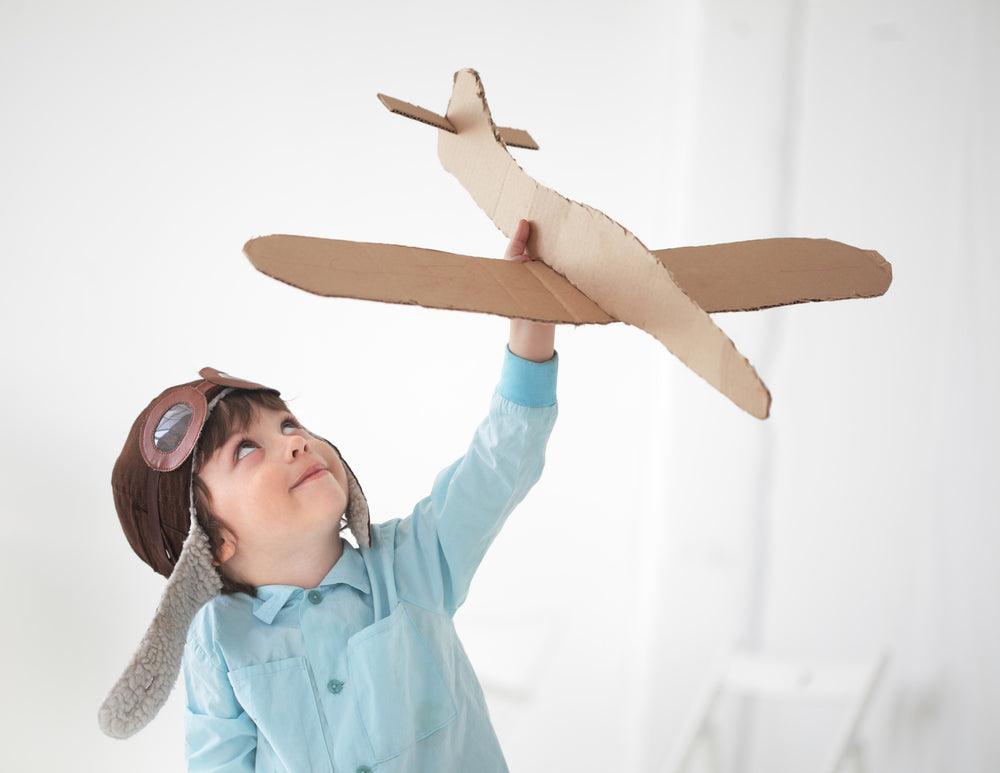Does Play Improve Academic Growth?


Yes it does! A number of recent studies have shown that the act of playing, especially when that play is open-ended, benefits children in a myriad of intellectual ways. The American Academy of Pediatrics has gone so far as to call play “essential to the cognitive, physical, social and emotional well-being of children.”
Open-ended play encompasses all types of make-believe, fantasy and creative play, yet despite its seeming contrast to classroom study, this kind of play actually improves academic success for a number of reasons.
Firstly, play has been linked to brain growth. Researchers have found that stimulating environments (that included toys) result in larger brains and quicker maze-solvers among the animals they studied.
Second, play is a way for children to practice what they have just learned. From the toddler who sings the alphabet to his doll, to the six-year-old who piles pretend groceries into a cart and adds them up as she goes, children can repeat newly-learned skills in a low-pressure environment, and improve their understanding of them as they go.
Play improves a child’s ability to self-regulate (to control their impulses, emotions, and attention span), which is a strong predictor of success in school. Play also improves a child’s ability to reason counterfactually, which again will serve him in good stead in academic settings.
Studies show that play contributes to language development, and also improves ideational fluency (the ability to rapidly produce a series of ideas). One psychologist analyzed 46 previously published studies of the effects of play on language, and found that particularly with group make-believe play, children’s skills improved significantly in cognitive, linguistic and social areas.
Imaginative play has been shown to promote divergent thinking, which is the process of developing out-of-the-box solutions. As many commentators have recently remarked, the rapid pace of technological progress has made it impossible for us to predict the specific skills our children will need as adults, but a solid base of problem-solving skills should prepare them for any type of future.
Researchers have found that the complexity of a child’s play with blocks correlated with her future success in math, even after they had controlled for IQ levels. That suggests that it was the block play itself that caused the success. Construction toys in particular have been shown to improve spatial skills and inspire children to pursue STEM career paths.
Interestingly, children who have been given regular play breaks pay more attention in classroom settings afterward.
To look at the subject from another angle, researchers have shown that academic pressure in kindergarten does not translate to improved academic success later on, which they present as an argument for more play and less academic drill in the early grades of school.
Lastly, and perhaps most importantly, play is the gateway to a rarefied state known as “flow.” When a person experiences flow, he is so immersed in an activity that time seems to have stopped. He is happy, challenged, fulfilled, and exhilarated. We know that we are all more likely to pursue activities that make us feel content and satisfied. Ideally, our children will learn to experience flow while they are engaged in academic pursuits, as they apply their natural enthusiasm for learning with their delight at acquiring new knowledge and skills. Simply placing a child in a classroom at age five won’t automatically translate to a state of “learning=flow”, however. It is the thoughtful application of play that will bridge the gap from “play = fun” to “play = learning” to “learning = fun”. And that is the state from which the highest levels of success will spring.
Recent Articles
-
Playful Primer 10 Must-Have Toys for Your Next Backyard BBQ
Summer is just around the corner and we're ready for it! From backyard BBQs to neighborhood park outings, we've discovered...
read more -
Playful Primer Tips & Toys to Support Group Play Experiences
Catching a glimpse of children happily engaged in pretend play is like witnessing pure magic. Ever wonder how closely you...
read more -
Playful Primer 5 Ways to Strengthen the Bond Between Siblings
“I’ll take care of the bike. You take care of each other.” This is what I said to my children...
read more
